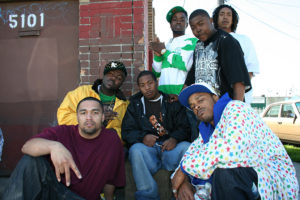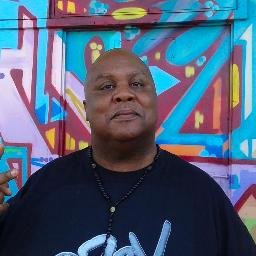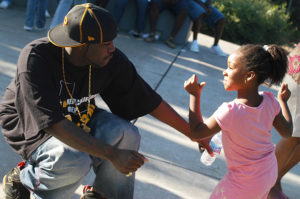by Harry Louis Williams aka O.G. Rev
“Where I’m from, you ain’t promised nothin’, man
A lot of y’all ain’t taking advantage of your life, man
Listen …” – from “Streets of the Bay,” Mistah F.A.B.
2011 was a violent year. The streets of Oakland seethed with endless beef. The angry word “homicide” screeched out from newspaper headlines. A culture of death had begun to rear its ugly head in the Town. Young people collected funeral programs like party invitations. Homegrown hip-hop artists glorified the gunplay in their music.
In the midst of the mayhem, an idea hit me. I sat down with Pastor Albert Lee of Regeneration Church on East 15th Street and asked if I could host a Dr. Martin Luther King Jr. Day service at his church. I wanted to call it the “Stop the Gunfire Gathering.”
A crisp, Pacific wind raced through the church doors that January morning. Unsteady sunlight filtered through the stained glass portraits of Peter and Paul and fell upon the tear stained faces of people who had lost loved ones in the endless carnage.
I remember the sadness that caused Wanda Johnson’s eyes to glow as she sat near motionless on a wooden pew near the front. I had asked her to say a few words to the community but she declined. She wasn’t ready. Her brother Cephus X. Johnson aka “Uncle Bobby” spoke for the family. Cries of “Lord Jesus” and “have mercy” echoed through the church as he told of the family’s struggle to find justice for his fallen nephew, Oscar Grant.
One after another, community leaders came to the pulpit, not only from Oakland but San Francisco as well. Each preached and prayed for an end to the shooting. Soon the event would be over. Many would remember it as a momentary triumph over evil. However, I was personally disappointed that one of Oakland’s most revered and respected hood figures had broken his personal promise to me. He wasn’t there.
That disappointment was short lived. Just before I was set deliver the benediction, my cell phone vibrated in my jacket pocket. When I answered it, a voice said, “I apologize for my lateness. I couldn’t find the church. I’m here though, now.” And moments later, Mistah F.A.B. the voice of the Oakland streets walked through the ornate church doors.
Oakland’s most famous hip-hop artists did not rap that day. He read a poem to his newborn daughter, a hope for a better and a brighter world. And everybody listened because like I said, F.A.B. is the voice of the streets, the voice of the voiceless.
Mistah F.A.B. the voice of the Oakland streets walked through the ornate church doors. He read a poem to his newborn daughter, a hope for a better and a brighter world.
F.A.B. is the embodiment of the struggle of young Black men growing up in the raw, merciless streets of post-industrial Oakland, California. It would be easy enough to rip his biography from another article and lazily post it here like a boxing contender’s vital statistics.
Instead, right here I’ll allow him an insight into his own world through a conversation that he has with his brother who is serving life in prison. The following real life lyrics are excerpted from Mistah F.A.B.’s song, “Brother To Brother,” from his “Son Of A Pimp 2” album.
But you was more interested in the streets than believing in me
So you wonder why I’m mad and why I don’t reach back
You let me down so many times doing all that
It hurt my heart to find out, man, that you was smoking on crack
I was like nah, my brother wouldn’t do that
But you did, bro, I looked up to from a kid, bruh
No matter whatever it is, you was my big bruh
But them drugs had your mind gone
And blind jealousy had you looking at me like I’m wrong
Decisions you was making in the street wasn’t wise ones
And the things that you said could have jeopardized lives, bruh
You was only worried about you and yours, wasn’t worried about mine, bruh
With you being locked up, who you think was easy to find, bruh?
Your niece getting old, she about to turn nine, bruh.
Daddy had AIDS, I sat and watched him die, bruh
Mama had cancer, I sat and watched her die, bruh
Twelve years I waited for you a lot of time, bruh
For you to get out, go back and do time, bruh
That’s why I’m not f—in’ with you no more, you a waste of my time, bruh
But I love you, man, I really do
And as I get older, I feel sorry for you
But you weren’t worried about niggas trying to kill me
What will be, will be, when it will be
This is only how I feel, I just hope you feel me …
As underscored by those poignant words, Mistah F.A.B. did not come up with a golden spoon in his mouth. From the time that he made his first step, the struggle has been real. His indomitable will has been his ladder of escape from North Oakland poverty.
A devastating battle rapper and one of the best freestyle artists that the hip-hop game has ever produced, Mistah F.A.B. has clawed his way to top – writing platinum songs for R&B legend Chris Brown and guest starring on tracks by artists like Snoop Dogg.
He is still a young man. However, in these latter years, F.A.B. has used his voice to offer direction, encouragement and advice to young people desiring to stand on the peak of hip-hop stardom next to him. As he grows into O.G. status, that voice of wisdom becomes more pronounced.

Monday, Sept. 3, 2018, was Heiro Day. I pressed myself to the stage to hear hip-hop heavyweights like my Talib Kweli and Black Thought of the Roots. When F.A.B. came to the stage to introduce one of the artists, I saw that he was toting a paperback with him.
From my perch in the front row, I hollered, “F.A.B.!, what’s that book?” He stooped down and handed it down to me. The cover said, “Dope Era – The Book” by Stanley Cox. Like another street classic, “The Naked Soul of Iceberg Slim,” it breaks down F.A.B.’s isms and philosophies on life.
A few days later in the back room of his urban wear store, “DOPE ERA,” F.A.B. sat back and reminisced about his upbringing. He said, “Where I’m from on 45th and Market, man, its crazy, man. Luge, who was my little young homeboy.
“He was Vietnamese, but he was raised in the projects right there with us. When we grew up, he was one of us. He got killed right there on the same block.
“And Chunk, another childhood friend, was killed right there on that same block. And Frosty got killed right on that same block. Right here where I grew up.
“It’s crazy cause you go back and you look and you say, ‘Damn, I lost several friends right here on this same corner’ … But somehow I found a way to smile through it all.”
Listening to him muse, one gets the feeling that his new book, “Dope Era,” is a kind of literary catharsis, a channel through which he can explain his life. Speaking of his new book, he says, “The book is just motivation. It’s just me being able to share some of the methods that I use to stay on track and to stay focused.
“These are the tips that I use to reassure myself that sometimes I have to be a guiding light in my own life. Sometimes we have to be our role model and our voice of reason of reason.
“Sometimes we need to be our own motivation. A person can’t have any motivation if they can’t look in the mirror and see it for themselves. If you feel my trials or my successes are some things that you are motivated by, here’s some of the things that I used to get to this level right now.”
Speaking of his new book, he says, “The book is just motivation. It’s just me being able to share some of the methods that I use to stay on track and to stay focused.”
“Dope Era” is not just for young people. F.A.B. was quick to say, “Peers, colleagues and elders can benefit from this book as well. There are some key jewels. Sometimes the student can live long enough to remind the teacher of lessons that they may have forgotten.”
To the young men and women being lured by the criminal underworld, he warns: “You cannot rob and kill and destroy and do all the poisons of the world and expect not to get caught. When you get caught, you want to cry about how the judicial system is set up for us to fail.
“A lot of people want to ignore those facts because they don’t want to be held accountable to the actions that they are doing. So while we are taking pride in these gangsters and these drug dealers and these convicts, we should be telling our children to become lawyers, to get on the Supreme Court, so that we can clear out some of the injustice and have a level field.
“But first of all, let’s stop involving ourselves in that lifestyle so that we won’t have to worry about that. When people are falsely incriminated, then that’s a different scenario. Even then, we have to avoid being in the areas where they can profile us like that.
“If you’re outside and its 3:00 in the morning, it’s like, ‘What are you doing?’ ‘Nuthin.’ Nuthin begets nuthin. You should have been doing something.”
Mistah F.A.B. is the doctor who tests the medicine before dispensing it. He said, “A female asked me to come over the other day at 4:00 in the morning. What would I look like going there? If something happens to me and I’m going to a certain neighborhood, how am I going to explain that? ‘Bruh, what was you doing over there?’ We have to be mindful of that.”
F.A.B. goes on as though he is talking to a group of youth on a corner in his old hood. “Why were you carrying a gun? If don’t have a record, go get a gun license. We are trying to be so slick and stay one step ahead of the law; that’s the way their technology is advancing.
“You have to get up pretty early in the morning to outsmart them now. So, you might as well do it the right way. If you don’t have any felonies, go get a license to carry.
“I feel like we are always trying to out-slick and out-smart something, and when we get caught we want to cry like we’re the victims. And what I’m saying is not from a stance of privilege; that’s from a stance of experience.
“I’ve seen people who were the coldest, toughest gangsters on the street who as soon as they get caught want to cry about, ‘Awww, nobody helping me. Ain’t nobody puttin’ nuthin’ on my bail. Ain’t nobody trying to help me get a lawyer.’
“Like, bruh, you wasn’t thinking about nobody else when you was doing all this b.s. When you was robbing, when you were doing all these licks (robberies), when you were getting all this money, you didn’t think about nobody else. Now all of a sudden, the hood owes you.
“You somehow reason that because you’re from the hood and you’re in jail, everybody from the hood should somehow do something for you. That’s crazy! And then somebody will really go to the earth’s end to tell you that you are wrong because you don’t want to contribute to the ignorance that they are on. Be held accountable for your actions!”
When I first met F.A.B., he was in the streets of Oakland decrying the violence. That has not changed an iota. I sense a great deal of disappointment as he speaks about the violence that has wracked his community for generations.
Mistah F.A.B. said: “The only time we care about each other is when we get killed by the police officers. We’ll go march three or four hundred deep when a police officer kills one of us. Yet we kill each other every day and nobody say something.
“When we kill another Black, it’s ‘Oh, that ain’t none of my business.’ But when do Black lives matter to Black lives? When do we matter? Do you only matter when we get killed by the police? It gets crazy. You start looking at it and ask yourselves some real questions.”
Mistah F.A.B. continued on the subject of urban violence. “It’s snitching when this dude kills this innocent baby. Everybody knows he did it but ain’t nobody gon’ say anything because that ain’t your business. But this baby done died and had to be the sacrificial lamb for some bullsh*t that it had nothing to do with. But ain’t nobody going to say nothing because that’s snitching … because we keepin’ it real.”
Now I’m being an advocate telling on people and dropping tips, but we got to get back to what the streets stand for and what it really is to be held accountable. That means that no women or children get shot.
Why should anybody get shot? If we can’t talk about it, is it life or death? You mean we have to kill each other? About what? It’s like they killing at a video game rate. Y’all just shooting and killing for nothing? For no reason?
Many of Mistah F.A.B.’s greatest fans are behind bars. He sends a message to them. “Stay focused. Get in those books. Get in the law library. Learn as much about your case as you possibly can. Remember what law stands for: Loopholes Always Win. See if there is a loophole in your case. Try to find that loophole. Education is true emancipation.”
After I left the Dope Era store, a thought sprung into my mind. The inner city has birthed many venture capitalists, lawyers, doctors, executives and just plain working people who kept a 9 to 5 until they retired.

How many will ever come back to the streets to coax young people to finish college? How many will grant internships to young people to work in their places of employment? How many give out food packages and college scholarships to the community?
When Mistah F.A.B. bares his soul, young people listen, because they know he’s doing more than talking. He’s made sacrifices.
Harry Williams aka O.G. Rev is an Oakland-based minister and community activist. He is the author of six books, including the upcoming, “When the Struggle Is Real: O.G. Rev’s Hip-Hop Prayers and Meditations.” His website can be found at www.revharrywilliams.us. Contact him at innercityhealing@yahoo.com.






